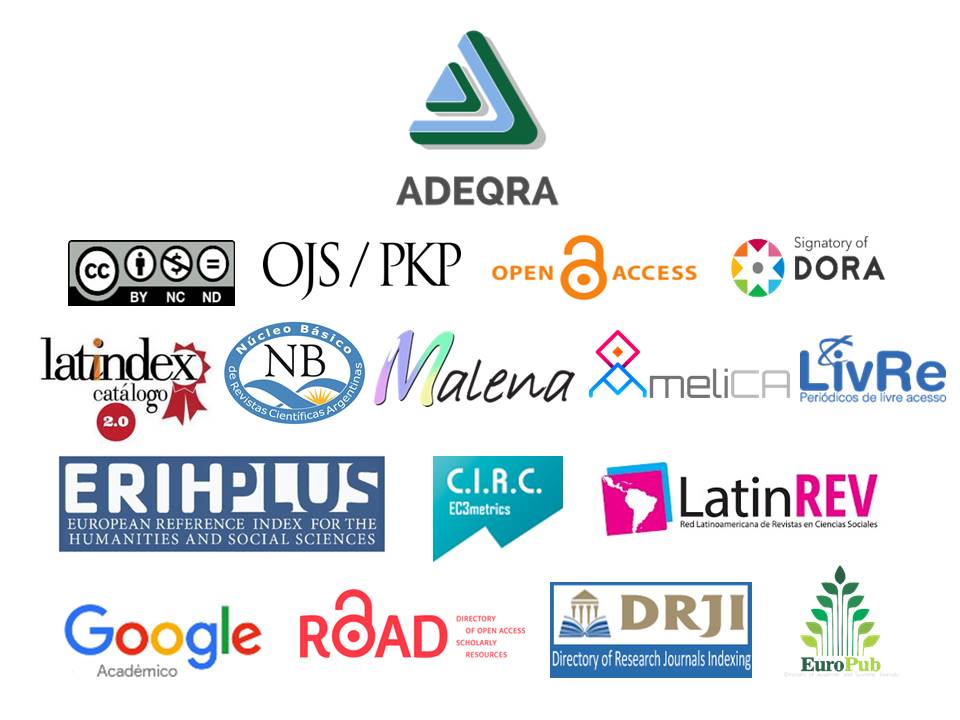Recovery period supported by STEAM in the context of pandemic
Keywords:
Organic and Biological Chemistry, pandemic, accreditation and promotion, STEAM project, modellingAbstract
The proposal designed to evaluate in February 2021 the subject Organic and Biological Chemistry, diagrammed for students of 6th year of Technical Secondary Education whose assessment report showed learning difficulties in the year 2020, of remote course. The methodology chosen is the addressing of a project with a STEAM approach (acronym for: Science, Technology, Engineering, Art and Mathematics) with the purpose of promoting the learning of scientific concepts through their instrumentation in the elaboration of a product. The research, the 3D design and the analysis of the biomolecules involved in this evaluation proposal allowed combining scientific, technological, engineering, artistic and mathematical knowledge. The results of the evaluations were satisfactory and the students assessed the experience in a very positive way.
References
Acosta, F. (2022). Diversificación de la estructura de la escuela secundaria y segmentación educativa en América Latina, Documentos de Proyectos (LC/TS.2021/106/Rev.1), Santiago, Comisión Económica para América Latina y el Caribe (CEPAL).
Álvarez Méndez, J.M. (2011). Evaluar el aprendizaje en una enseñanza centrada en competencias. En J. Jimeno Sacristán (Comp.) Educar por competencias, ¿qué hay de nuevo? (3 ed, pp. 206-233). Morata.
Díaz Barriga, F. y Hernández, G. (2002). Estrategias para la comprensión y producción de textos. México: McGraw Hill.
Dirección General de Cultura y Educación (octubre 2020). Documento de evaluación, calificación, acreditación y promoción. Educación Secundaria 2020-2021. Gobierno de la Provincia de Buenos Aires. http://www.vbsueldos.com.ar/wp-content/uploads/2020/10/099-Evaluacioon-calificacion-acreditacion-y-promocioon-2020-2021_Version19Oct.pdf
Dirección General de Cultura y Educación (s.f.). Anexo 3. Diseño Curricular de la Educación Secundaria Modalidad Técnico Profesional. Provincia de Buenos Aires. http://servicios2.abc.gov.ar/lainstitucion/organismos/eductecnicaprofesional/direcciones/normativas/documentos/resolucion/3828-09_anexo_3.pdf
Domènech-Casal, J. (2018). Aprendizaje Basado en Proyectos en el marco STEM. Componentes didácticas para la competencia científica. Revista de Educación Científica, 2(2), 29-42. https://doi.org/10.17979/arec.2018.2.2.4524
López Simó, V., Couso Lagarón, D. y Simarro Rodríguez, C. (2020). Educación STEM en y para el mundo digital: El papel de las herramientas digitales en el desempeño de prácticas científicas, ingenieriles y matemáticas. Revista de Educación a Distancia (RED), 20(62). https://doi.org/10.6018/red.410011
Santillán, J.P., Cadena, V. del C. y Cadena, M. (2019). Educación Steam: Entrada a la sociedad del conocimiento. Ciencia Digital, 3(3.4.), 212-227. https://cienciadigital.org/revistacienciadigital2/index.php/CienciaDigital/article/view/847/2047
Tinkercard (2011). © 2021 Autodesk, Inc. https://www.tinkercad.com
Published
How to Cite
Issue
Section
License
Copyright (c) 2023 Walter Acosta, Sandra A. Hernández

This work is licensed under a Creative Commons Attribution-NonCommercial-NoDerivatives 4.0 International License.



